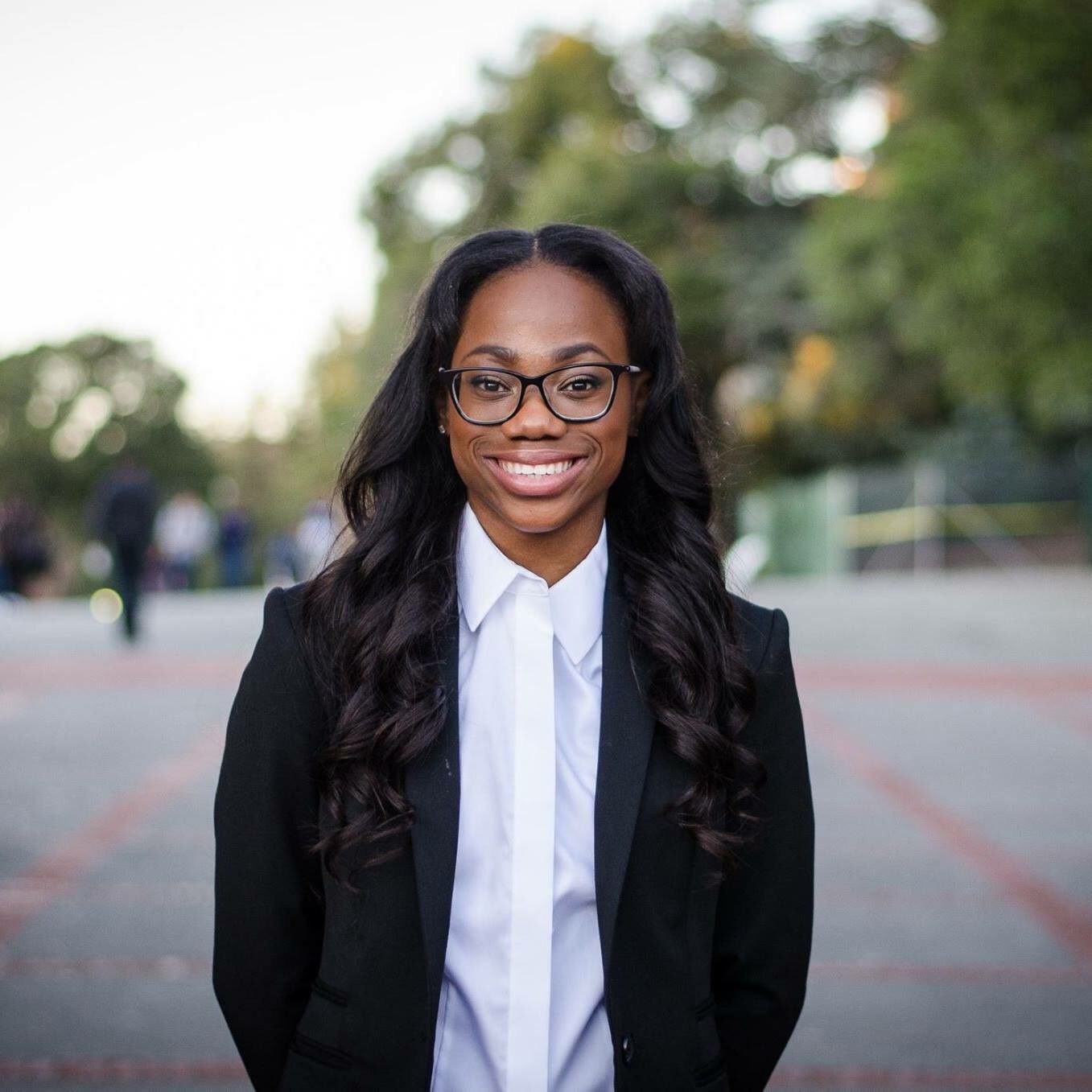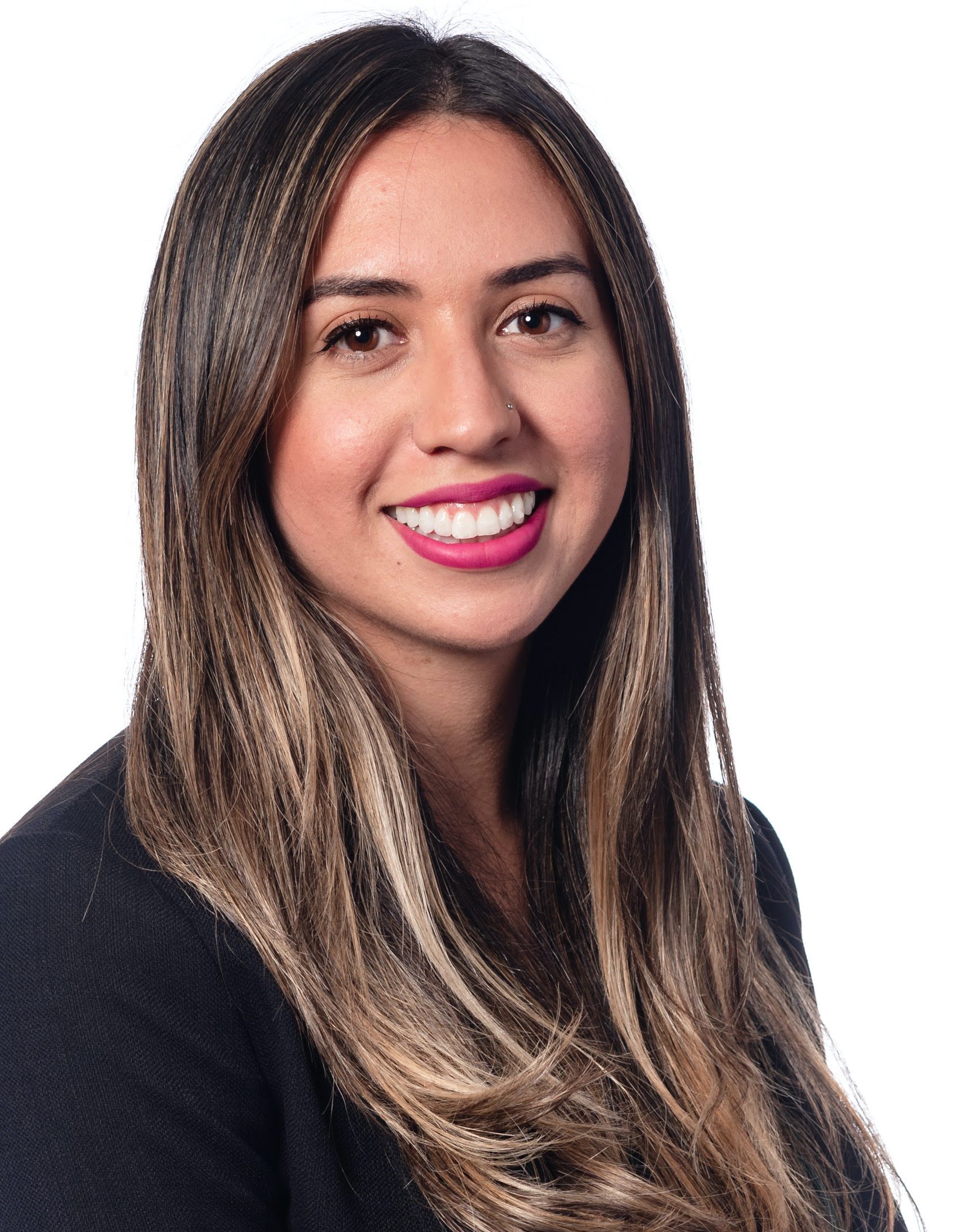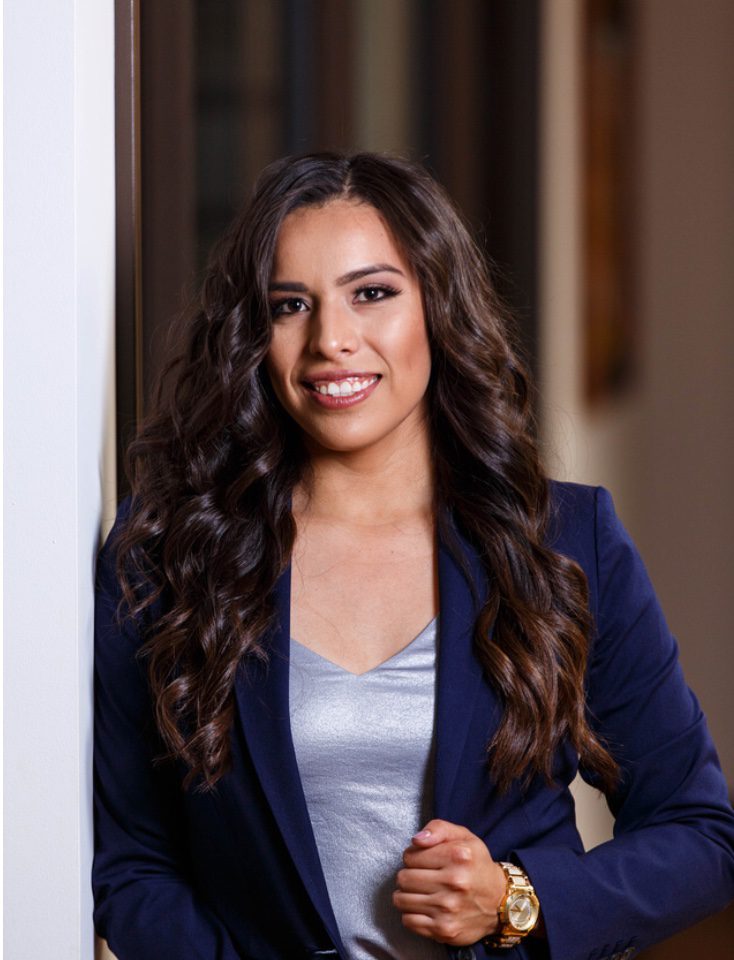Inspirations and Aspirations: Meet the BASF Diversity Scholars
Three UC Law SF students who received prestigious scholarships from the Bar Association of San Francisco’s Justice and Diversity Center took disparate paths and overcame numerous obstacles to get to law school.
Now Miriam Yarde, Graciella “Gracie” Maynetto and Karla Martinez plan to use their legal education to make a difference—effecting positive change that will facilitate future success stories like their own.
1L Miriam Yarde is focused on transforming the foster care system. She knows the challenges firsthand, having been placed into foster care at a young age. Shuffled from home to home, she attended eight elementary schools by the age of 11. Through persistence and hard work, she went on to get her bachelor’s degree from UC Berkeley.
She interned and volunteered at two social justice nonprofits, California Youth Connection and SOAR for Youth, where she facilitated focus groups that provided guidance to lawmakers and child welfare workers. It was then that she realized the most effective way for her to help transform the child welfare system was through legal channels.
“Foster care often fails those it is intended to protect,” she said. “I have a comprehensive understanding of the pipeline from foster care that often leads to prison or to the streets, and I feel compelled to do what I can to stop the destructive cycle.”
1L Gracie Maynetto plans to use her legal education to pursue impact litigation to create a more equitable society.
She describes herself as the proud daughter of Salvadoran and Peruvian immigrants. Growing up, the family experienced financial hardships that taught her the value of hard work.
When she was in high school, her family’s economic insecurity led them to move three times in three years, forcing her to adapt to four new schools—a charter school and two public high schools in the Los Angeles area plus a public school in Covina. Before graduating with honors from UCLA, she attended Santa Barbara City College and became its first Latina student body president. She is currently a 1L Foltz Inn representative for Associated Students of UC Law SF (ASUCH).
“I want to create a more equitable society and opportunities for students who have not had the advantages that financially stable families enjoy,” she said. Her model is the incremental dismantling of barriers that Justice Ruth Bader Ginsburg devoted her career to. “Progress comes step by step, and I want to continue that tradition.”
Karla Martinez, 2L, wants to use her understanding of the law to assist minority communities and to earn a seat at the table where people like her are not usually found.
Born in Guanajuato, Mexico, she was raised by a single mother. Her advocacy efforts began at an early age, when she would assist neighbors with phone calls in English, translate documents for her Spanish-speaking mother, and volunteer at local community centers.
After cleaning houses and babysitting up to 30 hours a week during high school, she worked two jobs waiting tables to pay her way through community college before transferring to University of Southern California with the help of grant money.
“To me, having the opportunity to attend law school is not just another fancy title,” she said. “It means breaking and exceeding the expectations I felt confined to as a result of my background and limited finances.”
The Bay Area Minority Law Student Scholarship Program provides each student with $10,000 and the chance to renew for one or two years. Since its inception in 1998, the scholarship program has awarded more than $2 million to more than 100 students.
UC Law SF Lecturer Emeritus Richard A. Zitrin, who has served on BASF’s Bay Area Minority Law Student Scholarship Program board for 20 years, noted that many scholarship recipients have gone on to make a big impact in the law. For example, Amarra Lee, a 2003 recipient, became the first Black woman on the San Mateo County Superior Court bench. Other recipients have gone on to become associates and partners in firms, in-house counsel, and public-interest lawyers.
“The program has been a huge success,” Zitrin said, “not only for recipients but for those of us who’ve had the privilege of sponsoring and mentoring students, and getting to know them as individuals.”


